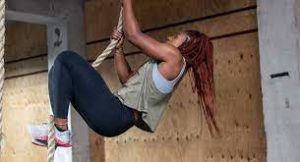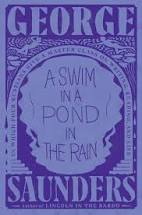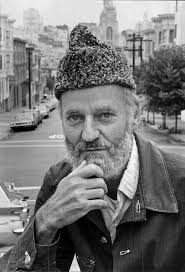
When unlocking a poem’s meaning, titles are one of the first “must considers” of your process. The wonderful trouble is, a poem’s title is often more than meets the eye. That’s OK, though. Even desirable. Poetry titles that hold multiple meanings are always satisfying to a reader. Even two will do. I’ve been poking around the 700-plus pages of The Collected Poems of Lucille Clifton 1965 – 2010 and came across a good example:
climbing
Lucille Clifton
a woman precedes me up the long rope,
her dangling braids the color of rain.
maybe i should have had braids.
maybe i should have kept the body i started,
slim and possible as a boy’s bone.
maybe i should have wanted less.
maybe i should have ignored the bowl in me
burning to be filled.
maybe i should have wanted less.
the woman passes the notch in the rope
marked Sixty. i rise toward it, struggling,
hand over hungry hand.
There’s climbing (literal) and then there’s climbing (theoretical). Certainly it works on a literal level, but poet and reader easily agree that “climbing” has something to do with desires, wishes, cravings.
The Buddha’s Four Noble Truths would warn the speaker off these desires because it only leads to suffering. That and the minor fact that every desire achieved is a temporary state, thus becoming yet another desire leading to yet another state of dissatisfaction. Thus we get the line “maybe i should have wanted less” twice, signifying its importance to the poem’s theme.
Heck with maybes. Certainly we should all desire less. And certainly we’re better off when not comparing ourselves to others (braids, clothes, or whatever), because the ever-changing game is one that never ends.
Our speaker, then, is gaining wisdom of a sort. The kind that comes with age. Speaking of, the capitalized “Sixty” could well be the age ahead. Clifton published this poem in 1992, putting her at around 56 years young, so you can connect the dots and see the speaker’s personal struggle. What struggle specifically? Against “the bowl in me / burning to be filled.”
You might think the last line, “hand over hungry hand,” with its lovely alliteration, signifies that the struggle goes on to become the woman climbing ahead, but it depends which woman ahead you mean.
If that woman is a wiser version of the narrator herself, then yes. The struggle is not for material goods or a physical look or a return to the desire or the dreams of youth. Instead, it is for the ability and discipline to understand the foolhardy nature of these desires, or what some might call a more enlightened state.
As for the reader? Good to know, we think, as we scale our own challenging mountains.





